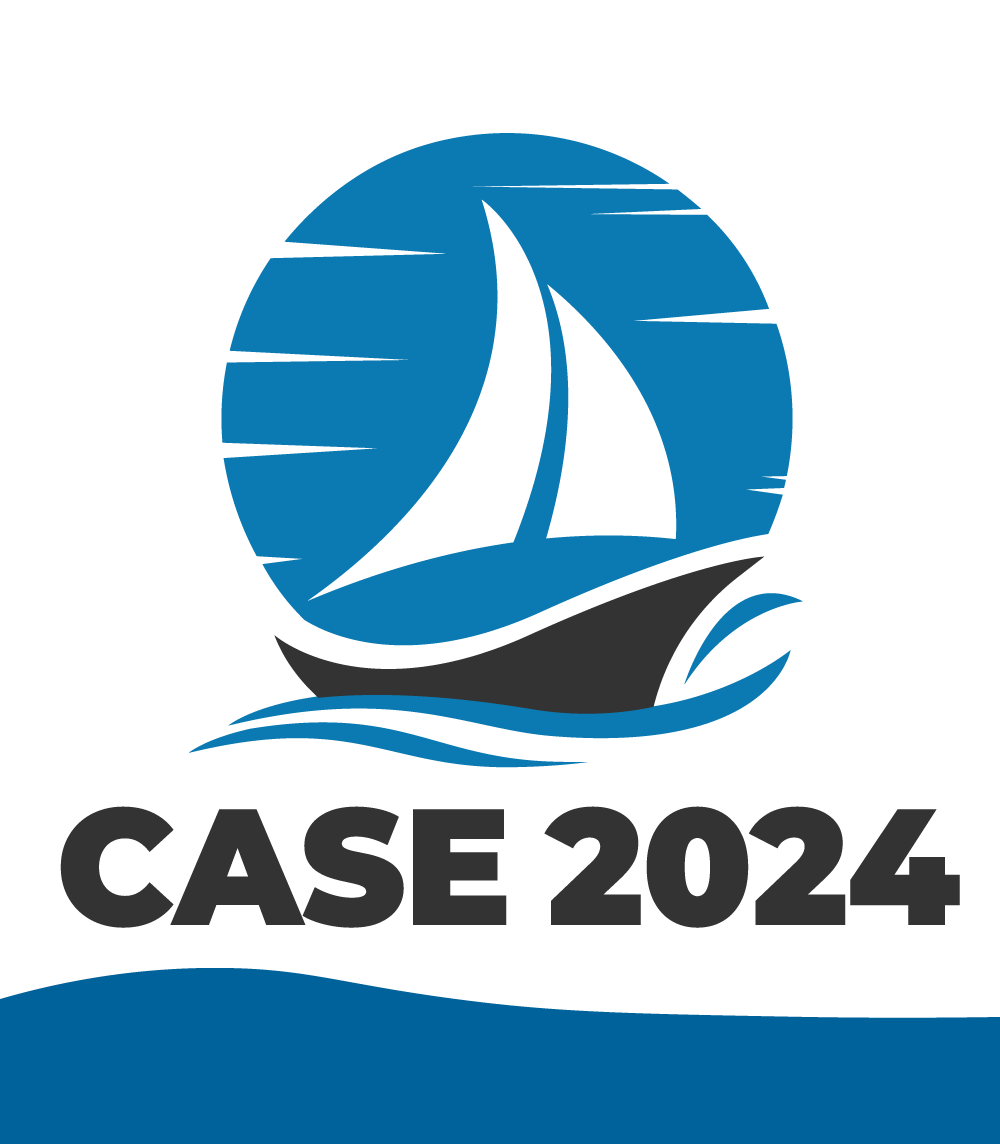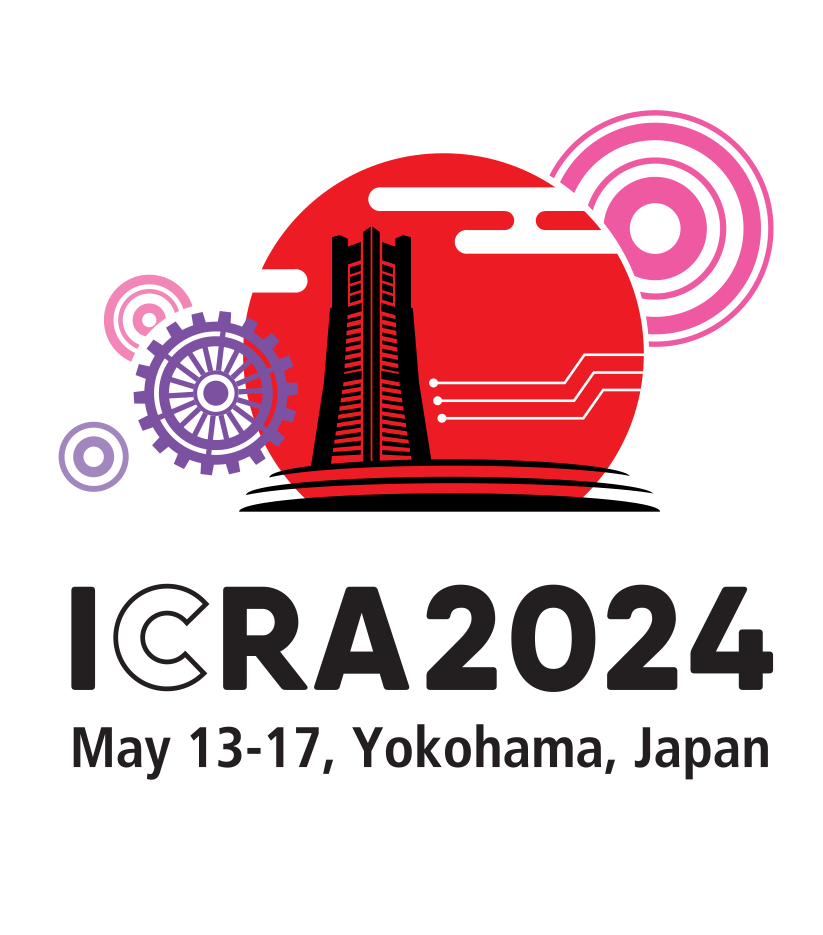Latest News
Engineering the future of medicine
IEEE Transactions on Medical Robotics and Bionics (T-MRB) is a multi-disciplinary journal covering the most significant advances in biorobotics and bionics and publishing papers reporting high-quality research in the field of robotics and of bionics applied to healthcare.
T-MRB lies at the intersection between biomedical engineering and robotics, fulfilling a dream shared by the two IEEE Societies (Robotics and Automation – RAS, and Engineering in Medicine and Biology – EMBS).
MAIN JOURNAL TOPICS
T-MRB publishes non-incremental results on innovative systems able to support prevention, diagnosis or treatment of human diseases. Such systems can be based on robotics and automation technology-related paradigms (e.g. surgical robots, devices for physical and cognitive rehabilitation, supporting systems for independent living, etc.) on bionics paradigms (e.g. medical systems which mimic living organisms or technologies that intimately interact with the human body), or the combinations of them, e.g. robotic artificial organs and other active implantable devices featuring direct interfaces to the human body. In addition, T-MRB promotes works investigating mechanisms and principles observed in nature in order to unravel scientific issues, and to exploit them to develop innovative bionic technologies. The Transactions also welcomes survey and commentary papers providing: critical, systematic review of research areas and trends within its scope; evidence-based studies on early clinical validation, and contributions on early ethical, social, economic, organizational impact assessment, of novel robotics and/or bionic solutions for medical and health care applications.
We are looking for high-quality, original research papers from all areas of research and development in medical robotics and bionics. We are also looking for comprehensive reviews of the state of the art, and to provide snapshots of research for a wider audience.
Publication of the inaugural issue: planned in February 2019.
The following issues will be published in May 2019, August 2019 and November 2019.
Editor-in–Chief: Paolo Dario, Scuola Superiore Sant’Anna
Email: paolo.dario@santannapisa.it
Website: http://www.ieee-ras.org/publications/t-mrb
SUBMISSIONS ARE OPEN
Submit your paper here: https://mc.manuscriptcentral.com/tmrb-ieee
The JST-CREST / IEEE-RAS sponsored school "Social and Artificial Intelligence for User-Friendly Robots" will be held from 17-24 March 2019 in Shonan Village, Japan after the Human-Robot Interaction (HRI) conference that will be held in nearby South Korea.
CALL FOR APPLICATIONS
I. Aim and Scope
Autonomous and intelligent systems are progressively moving into spaces, which have previously been predominantly shaped by human agency. Unlike in the past where machines obediently served their human operators, machines now increasingly act without the intervention of a human. Artificial intelligence is meeting new challenges in the world, though human-like intelligence may still be a distant goal. Robots in factories are coming out of their cages. Autonomous cars are being tested on streets with regular human-driven cars. The private household is changing with the appearance of not only robotic vacuum cleaners, but also with the first-generation of social robots and smart devices. The challenges that face both the robotics and artificial intelligence communities are how the necessary intelligence for such new environments can be created as well as how to make artificial agents capable of not only solving tasks at hand but also considering social environments around them during interaction with human users so as to behave appropriately. Within the school, we plan to address the tension created by the balance between task-specific artificial intelligence and the demands of sociability required to function effectively in human-centered environments.
** Who should apply? We invite Masters and PhD students as well as post-doctoral candidates and researchers from industry with relevant research background to apply for this spring school. Additional support could be available based on eligibility.
** This spring school is a Technical Education Program (TEP) endorsed and supported by JST-CREST / IEEE-RAS.
** The school aims at bridging the gap between social and cognitive Human-Robot Interaction (HRI), Artificial Intelligence (AI), and Autonomous Vehicles (AV) through high level talks, tutorials, and hands-on workshops (the program will be announced soon).
II. Keynote Speakers:
1. Takayuki Nagai, Osaka University, Japan
2. Jun Tani – Okinawa Institute of Science and Technology (OIST), Japan
3. Daniele Magazzeni – King's College London, UK
4. Yukie Nagai – National Institute of Information and Communications Technology (NICT), Japan
5. Tetsuya Ogata – Waseda University, Japan
6. Mohamed Chetouani – University of Pierre and Marie Curie (UPMC), France
7. Silvia Rossi – University of Naples, Italy
8. Agnieszka Wykowska – Italian Institute of Technology (IIT), Italy
9. Tetsunari Inamura – National Institute of Informatics (NII), Japan
10. Amit Kumar Pandey – SoftBank (Aldebaran) Robotics, France
11. Mehul Bhatt – Orebro University, Sweden (Tutorial)
12. Mohsen Kaboli – Bavarian Motor Works (BMW), Germany (Tutorial)
13. Francesco Maurelli – Jacobs University, Germany (Preparing Marie Curie funding proposal)
14. Atsuko Nakatsuka – Japan Society for the Promotion of Science (JSPS), Japan (Preparing JSPS funding proposal)
III. Submission
The applications must include the following files (combined into one file). No other documents would be necessary (More information is available on the school's webpage).
1. Curriculum vitae: A CV detailing relevant aspects of the candidate's academic career that demonstrates her/his relevance to the school theme. Please consider including the list of publications.
2. Research abstract: A 200-word research abstract that the candidate intends to present during the school.
3. Letter of recommendation: A brief letter from the academic advisor or the employer of the candidate supporting her/his application. Please also indicate if additional support would be required to attend the school.
Application submission: Please use the following EasyChair web link: Application Submission.
IV. Important Dates
1. Application submission: 10-January, 2019
2. Notification of acceptance: 14-January, 2019
3. Spring School: 17-24 March, 2019
V. Organizers
1. Amir Aly – Ritsumeikan University – Japan
2. Franziska Kirstein – Blue Ocean Robotics, Denmark
3. Shashank Pathak – Visteon Corporation, Germany
For more information see: https://inic8.bitbucket.io/SoAIR19/index.html
A Special Issue in the IEEE Transactions on Cognitive and Developmental Systems is planned for 2019. Topic: "Continual Unsupervised Sensorimotor Learning," with the submission deadline of 28 February 2019.
Aim and Scope
Although machine learning algorithms continue to improve at a rapid pace enabling technologies and products such as autonomous driving cars and sophisticated image and speech recognition, it is often forgotten that these applications represent tailored solutions to specific tasks. Thus it is not clear if or how these autonomous systems can pave the road to general purpose machines envisioned by many.
The pursuit for higher levels of autonomy and versatility in robotics is arguably lead by two main factors. Firstly, as we push robots out of the labs and productions lines, it becomes increasingly difficult to design for all possible scenarios that a particular robot might encounter.
Secondly, the cost of designing, manufacturing, and maintaining such systems becomes prohibitive.
As the algorithms for learning single tasks in restricted environments are improving, new challenges have gained relevance in order to get more autonomous artificial systems. These challenges include multi-task learning, multimodal sensorimotor learning and lifelong adaptation to injury, growth and ageing. Addressing these challenges promise higher levels of autonomy and versatility of future robots.
This special issue on Continual Unsupervised Sensorimotor Learning is primarily concerned with the developmental processes involved in unsupervised sensorimotor learning in a life-long perspective, and in particular the emergence of representations of action and perception in humans and artificial agents in continual learning. These processes include action-perception cycle, active perception, continual sensory-motor learning, environmental-driven scaffolding, and intrinsic motivation.
The special issue will highlight behavioral and neural data, and cognitive and developmental approaches to research in the areas of robotics, computer science, psychology, neuroscience, etc. Contributions might focus on mathematical and computational models to improve robot
performance and/or attempt to unveil the underlying mechanisms that lead to continual adaptation to changing environment or embodiment and continual learning in open-ended environments.
Contributions from multiple disciplines including cognitive systems, cognitive robotics, developmental and epigenetic robotics, autonomous and evolutionary robotics, social structures, multi-agent and artificial life systems, computational neuroscience, and developmental psychology, on theoretical, computational, application-oriented, and experimental studies as well as reviews in these areas are welcome.
Topics
This special issue aims to report state-of-the-art approaches and recent advances on Continual Unsupervised Sensorimotor Learning with a cross-disciplinary perspective. Topics relevant to this special issue include but are not limited to:
- Emergence of representations via continual interaction
- Continual sensory-motor learning
- Action-perception cycle
- Active perception
- Environmental-driven scaffolding
- Intrinsic motivation
- Neural substrates, neural circuits and neural plasticity
- Human and animal behaviour experiments and models
- Reinforcement learning and deep reinforcement learning for life-long learning
- Multisensory robot learning
- Multimodal sensorimotor learning
- Affordance learning
- Prediction learning
Submission
- Manuscripts should be prepared according to the “Information for Authors” of the journal
- Submissions must be done through the IEEE TCDS Manuscript center. Please select the category “SI: Continual Unsupervised Sensorimotor Learning”.
Important Dates
28 February 2019 – Paper submission deadline
15 April 2019 – Notification for authors
16 June 2019 – Deadline revised papers submission
16 July 2019 – Final notification for authors
18 August 2019 – Deadline for camera-ready versions
September 2019 – Expected publication date
Guest Editors
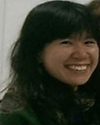
Nantes, France

Aarhus, Denmark

Istanbul, Turkey

Tokyo, Japan
Submit your application today! Application Deadline is 28 February 2019
The purpose of this award is to highlight and honor the achievements of the inventors with value creating ideas and entrepreneurs who propel those ideas into world-class products. This is a key element to the continuing success of robotics and automation today. Active infusion of innovation and entrepreneurship into technological advancement is regarded critical at this juncture to strengthen a healthy balance between research and practice as well as a healthy growth of industrial and commercial sectors in robotics and automation.

These achievements will be recognized in a specially organized IEEE/IFR Joint Forum on Innovation and Entrepreneurship in Robotics and Automation, which will be held on 21 May 2019 in conjunction with the IEEE International Conference on Robotics and Automation (ICRA 2019) in Montreal, Canada. The selected finalists will have the opportunity to present their story of the genesis of a successful innovative product in robotics and automation from its very inception to the final state of commercialization in a series of plenary lectures. The ultimate winner will be chosen by an evaluation board consisting of distinguished individuals from industry and academia. A prestigious plaque will be awarded to each finalist and a US$ 2,000 prize will be awarded to the winner.
Applications should describe the original work that has been translated into a commercial success. The application must include statements regarding:
- description of the innovation/product/application
- stages of the product genesis
- novelty/uniqueness of the product
- market analysis, economic viability and pathway for commercialization
- sustained competitive advantage
- current and future impact on and relevance to industry
DON'T MISS THE DEADLINE! Applications for the IERA Award must be submitted no later than 28 February 2019.
See more here: https://ifr.org/news/iera-award-2019-apply-now
CALL FOR APPLICATIONS
Applications should not exceed a maximum length of 5 pages. Product descriptions and public relation material will not be accepted as an application. References and links to online material are permitted.
SUBMISSION OF APPLICATIONS
Please send as PDF document (< 6 MB) no later than 28 February 2019 (any time zone) to either secretariat@ifr.org or to boesl@ieee.org.
For additional information see: Call for Applications
This special issue aims to bring wearable robots closer to broad real-world adoption by highlighting the latest innovations in the development of robust, intelligent wearable robots and their evaluations in real-world scenarios. It will focus on papers about working systems that are ideally evaluated with human subjects in order to determine the technology’s practical potential and impact on people with disabilities, workers, sportsmen, and others. Papers on stationary wearable robots will not be considered, though papers may be accepted if they describe the transfer of knowledge from stationary to wearable robotic technologies.
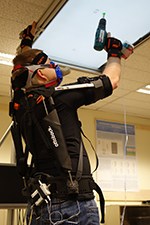
Papers should follow the standard RAM guidelines. A full peer-review process will be utilized to select papers for the special issue. Submissions should be made through the RAM submission website by 1 May 2019.This special issue aims to bring wearable robots closer to broad real-world adoption by highlighting the latest innovations in the development of robust, intelligent wearable robots and their evaluations in real-world scenarios. It will focus on papers about working systems that are ideally evaluated with human subjects in order to determine the technology’s practical potential and impact on people with disabilities, workers, sportsmen, and others. Papers on stationary wearable robots will not be considered, though papers may be accepted if they describe the transfer of knowledge from stationary to wearable robotic technologies.
Wearable robots have the potential to improve our lives in countless ways. People with weakened limbs can use exoskeletons to augment their strength or to retrain lost motor abilities, thus allowing them to nonetheless successfully perform activities of daily living. Similarly, workers of the future could use wearable robots to manipulate bigger and heavier loads, avoid injuries, and receive augmented feedback to enhance performance. Finally, wearable robots could even be used in sports, allowing wearers to move faster and farther.
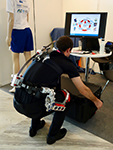
Unfortunately, despite extensive research in this area, most wearable robots remain limited to controlled laboratory conditions. This is due to several reasons: insufficiently robust mechanical design and control, excessive weight or power consumption, insufficient evaluations with human subjects, unclear cost-effectiveness and other issues. However, these barriers are not insurmountable, and there are many opportunities for innovative solutions from research groups worldwide.
***The above photos are from the GEs’ wearable robotics work that can be used as part of the call for papers. One is from the An.Dy project (http://andy-project.eu/) while the other is from the SPEXOR project (http://www.spexor.eu/).
Topics of Interest
- Mechanical design of robust wearable robots
- Collaborative control strategies for such wearable robots
- Reducing power consumption in wearable robots
- Human subjects evaluations of existing wearable robots in lab and real-world settings
- Human factors issues in real-world scenarios
- Impact of wearable robots on human productivity and quality of life
- Lessons learned when transferring wearable robots to different applications
- Cost-benefit analyses of wearable robots
Important Dates
March 2019 - Call for papers
1 May 2019 - Submission deadline
1 August 2019 - First decisions on manuscripts
November 2019 - Final decisions on manuscripts
December 2019 - Final manuscripts uploaded
March 2020 - Publication
Guest Editors

Ljubljana, Slovenia

Laramie (WY), USA

Brussels, Belgium
A new scale of urbanization, digitization, and industrialization has been driving the change of our world more profoundly than ever before. The question of energy — and the way we use it — is at the center of these rapid changes. Going “energy-efficient” then becomes a major component of the missions for manufacturers and service providers to stay globally competitive. With the recent advancement of sensor informatics, the Internet-of-Things (IoT), and artificial intelligence (AI), this mission can be better achieved through modeling, analysis, real-time monitoring and control of production service systems. The idea of “intelligent sustainable energy solutions” applies to many application areas, including but not limited to manufacturing, transportation, building management, and networking, etc. The goal of this special issue is to explore scientific models, methods and technologies with both solid theoretical development and practical importance to reshape industries, transform cities and enrich lives. The central theme of the proposed special issue is on Intelligent Energy Solutions to Sustainable Production and Service Automation, where information technology based modeling, analysis, control and optimization are the focus areas, and broad aspects and issues will be well discussed. Topics to be covered include, but are not limited to the following:
- Energy-aware product design
- Modeling/analysis of manufacturing power consumption
- Sensor based monitoring, data analytics, and control and optimization for energy efficient manufacturing processes and systems
- Sustainable energy management of production and service: planning, scheduling and control
- Applications of artificial intelligence, big data and IoT for sustainable manufacturing and service
- Energy solutions to green supply chain
- Real-time energy resource management
- Smart control in smart grid and energy management in industries
- Energy strategies for building management
- Big data enabled intelligent operation for sustainable building
- Sustainable buildings for urban sustainability
- Operations of alternative energy products
- Energy solutions to intelligent transportation systems
- Energy-efficient cloud computing systems and data centers
- Energy-efficient fog computing devices and systems for product and service automation
- Blockchain for Sustainability
Important Dates
30 June 2019 - Paper submission deadline30 September 2019 - Completion of the first round review
31 December 2019 - Completion of the second round review
28 February 2020 - Final submission due
30 April 2020 - Tentative publication date
Guest Editors

Charlottesville (VA), USA

Chongqing, China

Milan, Italy

Glassboro (NJ), USA
Paper Submission
All papers are to be submitted through the IEEE’s Manuscript Central for Transactions on Automation Science and Engineering http://mc.manuscriptcentral.com/t-ase. Please select “Special Issue” under Manuscript Category of your submission. All manuscripts must be prepared according to the IEEE Transactions on Automation Science and Engineering publication guidelines http://www.ieee-ras.org/publications/t-ase. Please address inquiries to tang@rowan.edu
Congratulations to the following RAS Members - elevated to IEEE Fellow grade, effective 1 January 2019!
2019 RAS Fellows evaluated by the IEEE Robotics & Automation Society
Hyouk Ryeol Choi - Sungkyunkwan University, South Korea
“For contributions to robotic interactive sensing”
Kerstin Dautenhahn - University of Waterloo, Canada
“For contributions to social robotics and human-robot interaction"
Emilio Frazzoli - Massachusetts Institute of Technology, USA
“For contributions to motion planning and control of autonomous vehicles"
Anibal Ollero Baturone - University of Seville, Spain
“For contributions to the development and deployment of aerial robots"
Evangelos Papadopoulos - National Technical University of Athens, Greece
“For contributions to space and field robotics"
Jan Peters - Technische Universitaet Darmstadt, Germany
“For contributions to robot learning of dexterous motor skills"
Hong Qiao - Institute of Automation, Chinese Academy of Sciences, China
“For contributions to robotic manipulation and biologically inspired robotic cognition"
Carme Torras - Institut de Robòtica i Informàtica Industrial (CSIC-UPC), Spain
“For contributions to learning algorithms for robot perception, planning and manipulation"
Robert Wood - Harvard University, USA
“For contributions to small-scale and soft robotics"
Eiichi Yoshida - National Institute of Advanced Industrial Science and Technology (AIST), Japan
“For leadership in the development of modular reconfigurable robotic systems"
2019 RAS Fellows evaluated by other IEEE Societies
Evaluated by the IEEE Computational Intelligence Society:
Zeng-Guang Hou - Institute of Automation, Chinese Academy of Sciences, China
“For contributions to neural network optimization and control for rehabilitation”
Evaluated by the IEEE Computational Intelligence Society:
Fuchun Sun - Tsinghua University, China
“For contributions to neural network control of nonlinear systems with applications to robotic manipulators”
Evaluated by the IEEE Communications Society:
Robert Fish – NETovations, USA
“For application of visual communications and networking"
Evaluated by the IEEE Control Systems Society:
Santosh Devasia - University of Washington, USA
“For contributions to feedforward control of nonminimum-phase systems"
Evaluated by the IEEE Control Systems Society:
Keum-Shik Hong - Pusan National University, South Korea
“For contributions to adaptive estimation and brain-computer interface techniques"
Evaluated by the IEEE Control Systems Society:
Min Wu - University of Maryland, USA
“For contribution to control and automation for complex systems"
Evaluated by the IEEE Engineering in Medicine and Biology Society:
Jose Luis Contreras – University of Houston, USA
“For contributions to brain-machine interfaces and wearable exoskeletons"
Evaluated by the IEEE Systems, Man and Cybernetics Society:
Xiaoping Peter Liu - Carleton University, Canada
“For contributions to system identification and networked teleoperation”
Evaluated by the IEEE Systems, Man and Cybernetics Society:
Naiqi Wu - Guangdong University of Technology, China
“For contributions to discrete-event production systems”

IEEE Fellow is a distinction reserved for select IEEE members. The honor is conferred by the Board of Directors upon a person with an extraordinary record of accomplishments in any of the IEEE fields of interest.
If you know of an IEEE colleague who is a Senior Member or Life Senior Member in good standing, has completed five years of service in any grade of IEEE Membership and who has made an outstanding contribution to the electronic or electrical engineering profession, you can nominate this person in one of four categories:
- Application Engineer/Practitioner
- Educator
- Research Engineer/Scientist
- Technical Leader
Additional information about the IEEE Fellow program, and a list of RAS Fellows is available HERE.
Congratulations to the six RAS members elected by the membership to serve a three-year term beginning 1 January 2019. We wish the newly elected members of the Administrative Committee success and thank all candidates for their willingness to serve and for permitting their names to be included on the ballot.
AdCom Members Elected at Large

Tokyo, Japan

Albuquerque (NM), USA
AdCom Member from RAS Geographic Area 1 (the Americas):

AdCom Members from RAS Geographical Area 2 (Europe, Africa, Middle East--IEEE Region 8):

London, UK

Rome, Italy
AdCom Member from RAS Geographical Area 3 (Asia, Australia, Pacific Rim):

IEEE - RAS Congratulates Recently Elevated Senior Members
Congratulations to the IEEE Robotics and Automation Society members recently elevated in October 2018 to Senior Member status by the IEEE Admission and Advancement (A&A) Senior Member Review Panel.
- To be eligible for application or nomination, candidates must:
- Be engineers, scientists, educators, technical executives, or originators in IEEE-designated fields
- Have experience reflecting professional maturity
- Have been in professional practice for at least ten years (with some credit for certain degrees)
- Show significant performance over a period of at least five of their years in professional practice
Nominees for IEEE Fellow must hold the grade of Senior Member or Life Senior Member in order to qualify for elevation to Fellow status.
|
Marcelo Ang |
Thomas Bak |
Richard Byrne |
|
Nevin Darwish |
Marcio De Queiroz |
Thomas Doney |
|
David Elata |
Ponciano Escamilla-Ambrosio |
Peng Fang |
|
Aleksandra Faust |
Sami Hajjaj |
Marco Huber |
|
Jan-Erik Kallhammer |
Jens Kober |
Kolja Kuehnlenz |
|
Dong Soo Kwon |
Mihai Micea |
Rajesh Panakala |
|
Md Mozasser Rahman |
David Reinkensmeyer |
Daniel Roesler |
|
Muhammad Salehuddin |
Hitesh Shrimali |
Asgeir Sorensen |
|
Jun Ueda |
Gentiane Venture Tokyo Section Tokyo University of Agriculture and Technology Campus |
Matthew Walter Chicago Section Toyota Technological Institute at Chicago |
|
Xiufen Ye |
Congratulations and welcome to the following new IEEE Robotics & Automation Society Chapters established in 2018 Q4.
Region 6
USA
- IEEE San Diego Section Robotics and Automation Society Chapter
Region 8
Jordan
- Jordan University of Science & Technology Robotics and Automation Society Student Branch Chapter in the Jordan Section
Turkey
- Istanbul Medipol University Robotics and Automation Society Student Branch Chapter in the Turkey Section
Region 9
Bolivia
- Universidad Catolica de Bolivia La Paz Robotics and Automation Society Student Branch Chapter in the Bolivia Section
Honduras
- IEEE Honduras Section Joint Chapter, RA24/COM19/C16
Region 10
India
- University College of Engineering - Osmania University in the Hyderabad Section
- Prathyusha Institute of Technology & Management College Robotics and Automation Society Student Branch Chapter in the Madras Section
- Dayananda Sagar College of Engineering Robotics and Automation Society Student Branch Chapter in the Bangalore Section
Heartfelt congratulations to Zexiang Li and Frank Wang, selected recipient of the prestigious 2019 IEEE Robotics and Automation Technical Field Award for "Contributions to the development and commercialization of civilian drones, aerial imaging technology, robotics engineering advancement, innovation, and entrepreneurship." They will receive this award during the 2019 IEEE International Conference on Robotics and Automation (ICRA) in Montreal, Canada on 20-24 May 2019.

The aerial technology innovations of Zexiang Li and Frank Wang are fueling one of the most significant robotics developments of the past decade—the rise of the drone and its growing impact on society. Wang and Li were the first to dispel the stereotype that useful aerial robots were expensive and unwieldy, repositioning drones from luxurious toys to practical tools. They cofounded Da-Jiang Innovations (DJI), the world’s largest manufacturer and leader in consumer drones and aerial imaging technology. Their flight control systems have provided robotics researchers with platforms for research in visual navigation, collective robotics, simultaneous localization and mapping, and object detection and tracking. Among DJI’s many innovations are drones designed specifically for agricultural applications, autopilot drones for search and rescue, and camera stabilization technology that achieves movie-grade aerial footage for the motion-picture and film industry.
An IEEE Fellow, Zexiang Li is a professor with the Department of Electrical and Electronic Engineering at the Hong Kong University of Science and Technology, Clearwater Bay, Hong Kong, China.
An IEEE member, Frank Wang is founder and chief executive officer of SZ DJI Technology Co., Ltd., Shenzhen, China.
The IEEE Robotics and Automation Technical Field Award was established in 2002 by the IEEE Board of Directors, and is presented for contributions in the field of robotics and automation. It includes but is not limited to: manufacturing automation; robotics and automation in unstructured environments; sensor design; integration and fusion; robot design; modeling; planning and control; methodologies for robotics and automation, and the quality of the nomination. This Award is sponsored by the IEEE Robotics & Automation Society.
Past Recipients can be found HERE
Seth Hutchinson will serve as RAS President Elect in 2018-2019. During the 6 October meeting in Madrid, Spain, the RAS Administrative Committee elected Hutchinson to serve as President Elect under President, Wolfram Burgard and to assume the Society presidency in January 2020. He is an IEEE Fellow and has served RAS on the Administrative Committee, as Editor-in-Chief of the IEEE Transactions on Robotics, as Editor-in-Chief of the ICRA Conference Editorial Board, and on numerous other RAS Committees and RAS Conferences.

Seth Hutchinson is Professor and KUKA Chair for Robotics in the School of Interactive Computing at the Georgia Institute of Technology, where he also serves as Associate Director of the Institute for Robotics and Intelligent Machines. His research in robotics spans the areas of planning, sensing, and control. He has published more than 200 papers on these topics, and is coauthor of the books "Principles of Robot Motion: Theory, Algorithms, and Implementations," published by MIT Press, and "Robot Modeling and Control," published by Wiley. Hutchinson is an Emeritus Professor of Electrical and Computer Engineering at the University of Illinois at Urbana-Champaign, where he was Professor
of ECE until 2018, serving as Associate Head for Undergraduate Affairs from 2001 to 2007. He received his Ph.D. from Purdue University in 1988. Hutchinson is a Fellow of the IEEE.
Congratulations to Ayanna Howard and her Team at Zyrobotics, selected as the first grantee of MicroSoft's AI for Accessibility.
In May 2018, Microsoft announced AI for Accessibility - a $25 million program that is aimed toward providing AI tools to developers in order to accelerate the creation of accessible solutions to benefit people with disabilities. The initiative is to be spanned over a period of five years.
Atlanta-based Zyrobotics has been cited by Microsoft as the first grantee of AI for Accessibility. The company develops science, technology, engineering and math (STEM) games and learning tools aimed towards education of young children, and it will be using Microsoft's help under the aforementioned program to develop AI solutions primarily centered around accessibility.
Zyrobotics' ambitions of creating technologies that would make reading easier for all students - regardless of whether they may or may not be facing learning disabilities.

Ayanna Howard is currently serving as Editor in Chief of the RAS ICRA Conference Editorial Board, is Professor and Chair of the School of Interactive Computing at Georgia Tech, and Founder & CTO at Zyrobotics.
RAS Administrative Committee Member, Carme Torras, publishes a Novel based on an imagined future with robots.

The Vestigial Heart
A Novel of the Robot Age
By Carme Torras
Translated by Josephine Swarbrick
A thirteen-year-old girl wakes up in a future where human emotions are extinct and people rely on personal-assistant robots to navigate daily life.
Imagine a future in which many human emotions are extinct, and “emotional masseuses” try to help people recover those lost sensations. Individuals rely on personal-assistant robots to navigate daily life. Students are taught not to think but to employ search programs. Companies protect their intellectual property by erasing the memory of their employees. And then imagine what it would feel like to be a sweet, smart thirteen-year-old girl from the twenty-first century who wakes from a cryogenically induced sleep into this strange world. This is the compelling story told by Carme Torras in this prize-winning science fiction novel.
Carme Torras, a prominent roboticist, weaves provocative ethical issues into her story. What kind of robots do we want when robot companions become as common as personal computers are now? Is it the responsibility of researchers to design robots that make the human mind evolve in a certain way? An appendix provides readers with a list of ethics questions raised by the book.
The novel has been published together with some ancillary materials to teach a course on Ethics in Social Robotics and AI.
Please see additional information here.
We are pleased to invite you to submit your research to the upcoming special issue on "Humanoid robot applications in real world scenarios”, to be published in the IEEE Robotics and Automation Magazine.
ABSTRACT
Humanoid robotics is a key challenge due to the inherent complexity of locomotion, balancing and interaction with humans or unknown environments. Striving to overcome these difficulties, companies, international competitions and research projects have highlighted the potential of bipedal technologies and demonstrated how it is now approaching the level of maturity required for autonomous operation in unstructured environments.
An increasing number of companies and research institutes are now developing middle- and large-size humanoid robots for different purposes. International projects aim to use these bipeds as human coworkers for industrial manufacturing and warehouse tasks, or tele-operated for inspection and intervention in hazardous environments. These scenarios require advanced locomotion and interaction capabilities which are being addressed, not only with classical stiff position control, but also with advanced compliant torque/force control.
This special issue on humanoid robot applications in real world scenarios will make the research community aware of the latest and upcoming trends in this field, which is becoming increasingly appealing to industrial companies, including actors that were not previously involved in robotics.
TOPICS
The special issue will target papers in the following research areas:
- real applications and use case scenarios of humanoid bipedal robots
- humanoid hardware design for harsh environments
- whole-body multi-contact planning and control for real world applications
- loco-manipulation strategies in dynamic environments
- agile motion generation and control of humanoid robots
- performance benchmarking for bipedal robots
- success stories of humanoid technologies
Guest Editors will select those contributions that apply humanoid robotics technology with clear practical applications.
IMPORTANT DATES
The deadline to submit a paper for the special issue are:
15 March 2019: submission deadline
12 May 2019: first decision communicated to authors
22 June 2019: revised paper submitted/start of the second round of review
20 August 2019: final acceptance decision communicated to authors
with the final publication in the IEEE Robotics and Automation Magazine December 2019 issue.
LINKS
Detailed timeline and further information can be found at the special issue web page.
Submission guidelines can be found at information for authors web page.
We look forward your participation!
GUEST EDITORS
Enrico Mingo Hoffman, Fondazione Istituto Italiano di Tecnologia, Genoa, Italy, enrico.mingo@iit.it
Nikos G. Tsagarakis, Fondazione Istituto Italiano di Tecnologia, Genoa, Italy, nikos.tsagarakis@iit.it
Luis Sentis, University of Texas at Austin, Austin (TX), USA, lsentis@austin.utexas.edu
Francesco Ferro, PAL Robotics, Barcelona, Spain, francesco.ferro@pal-robotics.com
Stéphane Caron, CNRS-UM LIRMM, Montpellier, France, stephane.caron@lirmm.fr
Help us collect gender data for IEEE RAS sponsored conferences! In an effort to create best practices for conference organization, we are collecting historic data on past events.
For each conference\year you are willing to complete:
- Select a conference and year by putting your name in an empty space in Column A OR Column B in: https://docs.google.com/
spreadsheets/d/ 1v4jLSnfiAoB2B6QhkxwCWT4NGk4kH c0NmkUTg17T7RI/edit?usp= sharing - Fill out a form available at https://goo.gl/forms/
uZCBtjDKXfyLwj9d2
IEEE-RAS Spring School on "Social and Artificial Intelligence for User-Friendly Robots" SoAIR2019
17-24 March 2019, Shonan Village, Japan
Application Deadline: 20 December 2018
Aim and Scope
Autonomous and intelligent systems are progressively moving into spaces, which have previously been predominantly shaped by human agency. Unlike in the past where machines obediently served their human operators, machines now increasingly act without the intervention of a human. Artificial intelligence is meeting new challenges in the world, though human-like intelligence may still be a distant goal. Robots in factories are coming out of their cages. Autonomous cars are being tested on streets with regular human-driven cars. The private household is changing with the appearance of not only robotic vacuum cleaners, but also with the first-generation of social robots and smart devices. The challenges that face both the robotics and artificial intelligence communities are how the necessary intelligence for such new environments can be created as well as how to make artificial agents capable of not only solving tasks at hand but also considering social environments around them during interaction with human users so as to behave appropriately. Within the school, we plan to address the tension created by the balance between task-specific artificial intelligence and the demands of sociability required to function effectively in human-centered environments.
** This spring school is a Technical Education Program (TEP) endorsed and supported by IEEE-RAS.
** The school aims at bridging the gap between social and cognitive Human-Robot Interaction (HRI), Artificial Intelligence (AI), and their applications in social robotics and Autonomous Vehicles (AV) through high level talks and hands-on workshops (the program will be announced soon).
Keynote Speakers
(More Speakers in HRI, AI, and Autonomous Vehicles will join the list soon)
Jun Tani – Okinawa Institute of Science and Technology (OIST), Japan
Daniele Magazzeni – King's College London, UK
Yukie Nagai – National Institute of Information and Communications Technology (NICT), Japan
Tetsuya Ogata – Waseda University, Japan
Maya Cakmak – University of Washington, USA
Mohamed Chetouani – University of Pierre and Marie Curie (UPMC), France
Agnieszka Wykowska – Italian Institute of Technology (IIT), Italy
Tetsunari Inamura – National Institute of Informatics (NII), Japan
Amit Kumar Pandey – SoftBank (Aldebaran) Robotics, France
Francesco Maurelli – Jacobs University, Germany (A special talk about preparing funding proposals)
Application Submission
The applications must include the following files (combined into one file). No other documents would be necessary (More information is available on the school's webpage).
1. Curriculum vitae: A two pages or less of CV detailing relevant aspects of the candidate's academic career that demonstrates her/his relevance to the school theme.
2. Research abstract: A 200 word research abstract that the candidate intends to present during the school.
3. Letter of recommendation: A short letter from the academic advisor or the employer of the candidate supporting her/his application.
Please use the following EasyChair web link: Application Submission.
Important Dates
Application submission: 20-December 2018
Notification of acceptance: 28-December 2018
Spring School: 17-24 March 2019
Organizers
Amir Aly – Ritsumeikan University – Japan
Franziska Kirstein – Blue Ocean Robotics, Denmark
Shashank Pathak – Visteon Corporation, Germany
The 13th IEEE International Conference on Automation Science and Engineering (IEEE CASE 2017), sponsored by the IEEE Robotics and Automation Society (RAS), was held in Xi’an, China, 20-23 August 2017. IEEE CASE is a flagship automation conference of the IEEE RAS and constitutes the primary forum for cross-industry and multi-disciplinary research in automation. Its goal is to provide a broad coverage and dissemination of foundational research in automation among researchers, academics, and practitioners.
Authors of papers included in the proceedings of CASE2017 are kindly invited to submit a journal version of their contributions to this special issue, which will undergo a full review process.
The central theme of CASE 2017 and of this special issue is Automation for Next Industry Revolution. The advances in information science and technology such as Internet Plus allow us to make many industrial systems smarter and more creative particularly: Smart Manufacturing Systems, Smart Buildings, Smart Cities, Smart Transportation Systems, Smart Energy Systems, etc.
Scope, Description, and More Information
This special issue aims to publish original, significant and visionary automation papers describing scientific methods and technologies that improve efficiency, productivity, quality and flexibility for automation for the next industry revolution, with both solid theoretical development and practical importance.
This special issue only accepts submissions made by previous authors of papers included in the proceedings of CASE2017. A small number of such papers – those containing significant scientific results as recognized by CASE2017 reviewers’ comments – will be accepted to submit a journal version to this special issue. Authors are kindly requested to expand significantly the conference version to contain substantial new technical materials due to the restriction in duplicated publications and the competitive acceptance (usually more than 30% of the results are new in the journal paper).
- Topics to be covered include, but are not limited to the following topics:
- Future Manufacturing Systems: reconfigurable manufacturing systems, industrial robotics, coordination and scheduling, and CPS and industrial Internet
- Foundation of Automation: discrete event systems, hybrid systems, fault analysis and recovery, system modeling and simulation, and monitoring and control
- Life Sciences and Healthcare: lab automation, automation in treatment diagnosis and disease, hospital and medical robotics, and healthcare management systems
- Automation in Meso, Micro, and Nano-scale: cluster tool scheduling, fab modeling and analysis, metrology, and nano-manufacturing
- Big Data for Automation: web, data, and text mining, web services and service oriented architectures, machine learning, software engineering in automation, and workflow management systems
- Automation in Logistics and Supply Chain Management: material handling and assembly, IT-enabled planning, coordination, and scheduling, resource allocation and management, and automation in remanufacturing and reverse logistics
- Networked and Control Systems: distributed control systems, multiagent planning and control, sensor/actuator networks, and wireless communication and control
- Cyber Physical Energy Systems: smart buildings, intelligent transportation systems, smart cities, and micro and smart grids
Important Dates
30 November 2018 - paper submission deadline
15 March 2019 - completion of the first review round
15 April 2019 - second round/final submission deadline
30 July 2019 - completion of the second review round, and final publication decision
Submission Information
All papers are to be submitted through the IEEE’s Manuscript Central for Transactions on Automation Science and Engineering (http://mc.manuscriptcentral.com/t-ase). Please select “Special Issue” under Manuscript Category of your submission. All manuscripts must be prepared according to the IEEE Transactions on Automation Science and Engineering publication guidelines (http://www.ieee-ras.org/publications/t-ase).
Prospective authors are encouraged to email to one of the guest editors abstracts of possible contributions including a cover letter with authors’ contact information.
Lead Editor

Atlanta (GA), USA
Guest Editors

Bari, Italy

Beijing, China
Special Issue "Continual Unsupervised Sensorimotor Learning" invites research articles.
AIM AND SCOPE
Although machine learning algorithms continue to improve at a rapid pace enabling technologies and products such as autonomous driving cars and sophisticated image and speech recognition, it is often forgotten that these applications represent tailored solutions to specific tasks. Thus it is not clear if or how these autonomous systems can pave the road to general purpose machines envisioned by many.
The pursuit for higher levels of autonomy and versatility in robotics is arguably lead by two main factors. Firstly, as we push robots out of the labs and productions lines, it becomes increasingly difficult to design for all possible scenarios that a particular robot might encounter. Secondly, the cost of designing, manufacturing, and maintaining such systems becomes prohibitive.
As the algorithms for learning single tasks in restricted environments are improving, new challenges have gained relevance in order to get more autonomous artificial systems. These challenges include multi-task learning, multimodal sensorimotor learning and lifelong adaptation to injury, growth and ageing. Addressing these challenges promise higher levels of autonomy and versatility of future robots. This special issue on Continual Unsupervised Sensorimotor Learning is primarily concerned with the developmental processes involved in unsupervised sensorimotor learning in a life-long perspective, and in particular the emergence of representations of action and perception in humans and artificial agents in continual learning. These processes include action-perception cycle, active perception, continual sensory-motor learning, environmental-driven scaffolding, and intrinsic motivation.
The special issue will highlight behavioural and neural data, and cognitive and developmental approaches to research in the areas of robotics, computer science, psychology, neuroscience, etc. Contributions might focus on mathematical and computational models to improve robot performance and/or attempt to unveil the underlying mechanisms that lead to continual adaptation to changing environment or embodiment and continual learning in open-ended environments. Contributions from multiple disciplines including cognitive systems, cognitive robotics, developmental and epigenetic robotics, autonomous and evolutionary robotics, social structures, multi-agent and artificial life systems, computational neuroscience, and developmental psychology, on theoretical, computational, application-oriented, and experimental studies as well as reviews in these areas are welcome.
THEMES
This special issue aims to report state-of-the-art approaches and recent advances on Continual Unsupervised Sensorimotor Learning with a cross-disciplinary perspective. Topics relevant to this special issue include but are not limited to:
- Emergence of representations via continual interaction
- Continual sensory-motor learning
- Action-perception cycle
- Active perception
- Environmental-driven scaffolding
- Intrinsic motivation
- Neural substrates, neural circuits and neural plasticity
- Human and animal behaviour experiments and models
- Reinforcement learning and deep reinforcement learning for life-long learning
- Multisensory robot learning
- Multimodal sensorimotor learning
- Affordance learning
- Prediction learning
SUBMISSION
Manuscripts should be prepared according to the Information for Authors of the journal found here:
https://cis.ieee.org/publications/t-cognitive-and-developmental-systems/tcds-information-for-authors
Submissions must be done through the IEEE TCDS Manuscript center:
https://mc.manuscriptcentral.com/tcds-ieee
During the submission process, please select the category SI: Continual Unsupervised Sensorimotor Learning.
IMPORTANT DATES
6 January 2019: Paper submission deadline
15 March 2019: Notification for authors
31 May 2019: Deadline revised papers submission
30 June 2019: Final notification for authors
31 July 2019: Deadline for camera-ready versions
September 2019: Expected publication date
More information on Continual Unsupervised Sensorimotor Learning:
http://projects.au.dk/socialrobotics/news-events/show/artikel/special-issue-on-continual-unsupervised-sensorimotor-learning/
GUEST EDITORS
Nicolás Navarro-Gerrero
Aarhus University, Aarhus, Denmark nng@eng.au.dk
Sao Mai Nguyen
IMT Atlantique, Francenguyensmai@gmail.com
Erhan Öztop
Özyeğin University, Turkeyerhan.oztop@ozyegin.edu.tr
Junpei Zhong
National Institute of Advanced Industrial Science and Technology (AIST), Japanjoni.zhong@aist.go.jp
Conor Walsh, 2017 Early Academic Career Award in Robotics and Automation recipient, and his Harvard team are advancing soft, wearable robots with embedded sensors for hand and arm rehabilitation.
With support from the National Science Foundation (NSF), Walsh and team are developing lightweight, soft, wearable robots that people can wear all day, every day, to help them regain use of their upper extremities. Walsh wants to shift the paradigm of rehabilitation from one where the therapist manipulates the fingers and thumb through some range of motion to one where a soft robotic glove can help the patient do the work themselves.
Read more and view the National Science Foundation video here: https://youtu.be/zgQFRJK3IK0




